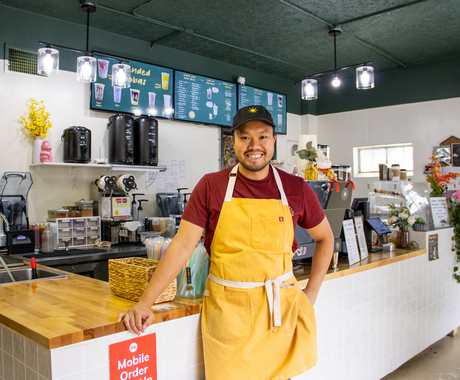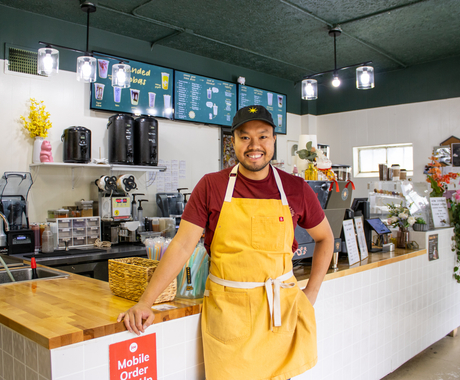Rhea Landholm contributed to this blog.
While entrepreneurship may not be for everyone, it is something anyone can take on.
Halle Ramsey, small business owner, and business development specialist with the Center for Rural Affairs, mentioned this idea recently while she was a guest on the Engler Journey Podcast. She joined host Emily Frenzen to discuss the upcoming workshop series, “CEO School,” and how these courses make entrepreneurship accessible to anyone.
Business owner, business coach, and University of Nebraska-Lincoln professor, Dave Lambe, also contributed to the conversation.
What is ‘CEO School’?
A series of five free, online classes, “CEO School'' is taught by industry experts and answers questions such as, “How do I know if I should be a CEO?” and “How can I become a better CEO?”
“With everything that COVID-19 has thrown our way, this is a very chaotic time and has definitely hit small business owners super hard,” said Halle. “So, we came up with this suite of classes that focuses on the foundational knowledge small business owners should have.”
The Center for Rural Affairs is partnering with Engler Agribusiness Entrepreneurship Program to present the courses, with the Center focusing on three topics—QuickBooks training, client retention, and sales acceleration. Engler will explore the topics of startup business finance and entrepreneurial peaks and valleys.
Entrepreneurship is for everyone
Halle says these courses offer information that’s applicable no matter where you are within your business cycle.
“These classes are for people in the startup phase who want to know what it takes to be a CEO or to run your business,” she said. “If you’re almost in that ideation phase, where you’re not really sure if it’s for you, this would be a great opportunity to get the nuts and bolts of what it takes to actually form an idea and bring it to life.”
The classes are offered virtually, which provides opportunities for more people to participate than if the courses were all held at one location.
“Instead of going into a community and only being able to have touch points with people from your area, we have seen participants in our classes from all across the state and sometimes across the country, which allows for some really unique networking opportunities,” Halle said.
This learning opportunity helps participants obtain firsthand knowledge of what business owners need, as well as how small businesses can affect the communities in which they’re located. Also, Halle believes missing out on an opportunity like this, to take a chance on a business venture, may be just as detrimental as not trying at all.
“Not being able to gain the knowledge and the experience of failure can be fatal to an idea or a process,” she said. “So, even if you’re able, you don’t have to do it all in a grand gesture. If it’s something you want to create or have a prototype of, you don’t need to have such a big initial investment. It’s about testing the waters and learning and talking to your customers.”
She encourages those with entrepreneurial dreams to reflect on whether this is something they feel they’re being called to take on, and to be patient with the process.
“So often we see people who fall in love with their product or with their solution and it’s really about falling in love with the people you serve or the problem you are trying to solve,” Halle said. “There are a lot of ways to do that. And, probably, your first idea is not going to be the one you stick with, which is why you should just start, because you’ll learn as you go.”
Invest in yourself
For those wondering what they may have to lose by signing up for “CEO School,” Halle has a simple answer.
“Nothing,” she said. “And, you have everything to gain. This is the time to invest in yourself and your business since it’s a new year. We’re all talking about setting resolutions and wanting to be the best versions of ourselves, and I can’t think of a better way to kick that off than by having essentially a bunch of accountability partners.”
Halle hopes setting goals and using the knowledge from these courses will sustain entrepreneurs throughout the entire year, with the chance for more resources and trainings provided in the future.
“Within the business world, you have to be willing to take the time to invest in your business, and a huge part of that is investing in yourself as a business owner,” Halle said.
And, through the workshops, instructors invest in the participants, too.
“I want to know what your ‘why’ is—why you want to do something and what is fueling you,” said Halle. “I love connecting people to other resources, other ideas, other people, other organizations, and then I really value and get energy from forming deep relationships. My goal is to try to get to the meat of what you are doing and how you see your business growing.”
Schedule of workshops
Workshops offered in the “CEO School” series include:
- “QuickBooks Basic” on Tuesday, Feb. 16, from 4:30 to 7:30 p.m.
- “Client Retention” on Tuesday, Feb. 23, from 4:30 to 6:30 p.m.
- “Sales Acceleration” on Tuesday, March 2, from 4:30 to 7:30 p.m.
- “Startup Business Finance” on Wednesdays, March 3, 10, and 17, from 4 to 6 p.m.
- “Entrepreneurial Peaks & Valleys” on Wednesdays, March 24 and 31, and April 7, from 4 to 6 p.m.
Registration is required. Visit cfra.org/events for information and to register.
Listen to the podcast
Listen to this episode of the Engler Journey Podcast by clicking here.





